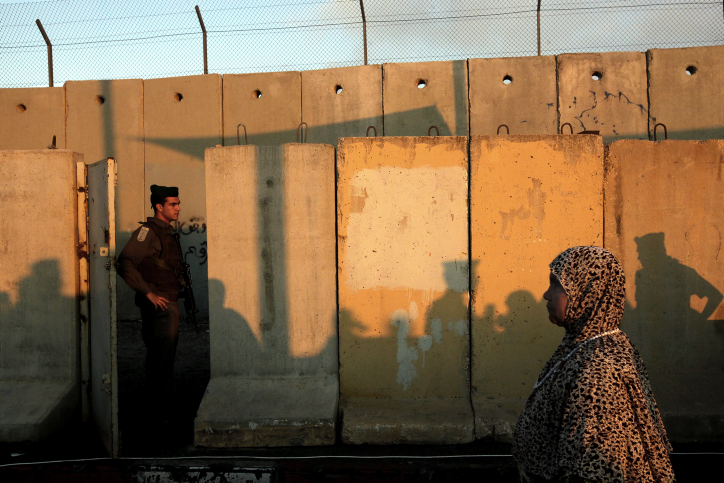A new survey finds that fewer Jewish Israelis and Palestinians now support the two-state solution. And while support for armed struggle against the occupation has dropped, more Jewish Israelis now support a ‘definitive war’ against Palestinians.
By Henriette Chacar

Support for a two-state solution is at the lowest level among both Israelis and Palestinians in almost two decades, according to a public opinion poll published on Monday.
The poll, conducted in June and July among representative samples of 2,150 Palestinians in the West Bank and Gaza, and 1,600 Israelis, was a follow-up survey to several previous studies conducted by Dr. Khalil Shikaki and Walid Ladadwa from the Palestinian Center for Policy and Survey Research (PSR) in Ramallah, along with Israeli pollster and +972 Magazine writer Dr. Dahlia Scheindlin and the Tami Steinmetz Center for Peace Research (TSC).
Support for the two-state idea began to steadily decline more than 10 years ago, but first dropped below 50 percent for both populations last December, following Trump’s controversial announcement recognizing Jerusalem as the capital of Israel. In the six months since, backing for the two-state solution dropped three points each for both Palestinians and Jewish Israelis, from 46 percent to 43 percent.
The research also found that Palestinian citizens of Israel follow a separate trend, with stable and high backing for a two-state solution at 82 percent.
When asked about the next step in the conflict, both Palestinians and Jewish Israelis favored reaching a peace agreement over violence – 84 percent among Palestinian citizens of Israel, 45 percent among Jewish Israelis, and 41 percent among Palestinians (47 percent in the West Bank and 29 percent in the Gaza Strip). Among Palestinians, this represents a significant rise compared to only 26 percent of respondents who chose this option following the Trump declaration and is closer to levels seen in June 2017.
However, a fifth of Jewish Israelis called for “a definitive war” against the Palestinians – the highest figure of the last three surveys. In June 2017, only 12 percent of Jewish Israelis supported that option. By contrast, fewer Palestinians opted to “wage an armed struggle against the Israeli occupation” – 27 percent as opposed to 38 percent six months ago.
The research team attributed the declining support for two sates to perceived lack of feasibility and lack of trust. They found that 47 percent of Jewish Israelis and 56 percent of Palestinians believe the two-state solution is no longer viable due to extended settlement expansion. Meanwhile, Palestinian citizens of Israel are the most optimistic of the three, with 64 percent believing that two states remain a viable option. Large majorities on both sides – 72 percent of Palestinians and 81 percent of Jewish Israelis – do not expect a Palestinian state to be established in the next five years.
Both sides believe the other side is untrustworthy – a quarter of Jewish Israelis trust Palestinians, while only 11 percent of Palestinians trust Jewish Israelis. The preeminent belief is that what is good for one side is bad for the other – almost half of Jewish Israelis (47 percent) and nearly three-quarters of Palestinians (71 percent) believe the conflict is zero-sum. Based on the findings, there is a net decline over the last two years in the percentage of Jewish Israelis and Palestinians who think the other side wants peace.
The portion of Jewish Israelis who do not support two states but opt for an alternative solution rose relative to December 2017: 19 percent, as opposed to 14 percent, support one equal state instead; and 15 percent, compared to 11 percent, prefer an apartheid-like situation of annexation without rights for Palestinians. Among Palestinians, the constituencies did not change significantly.

